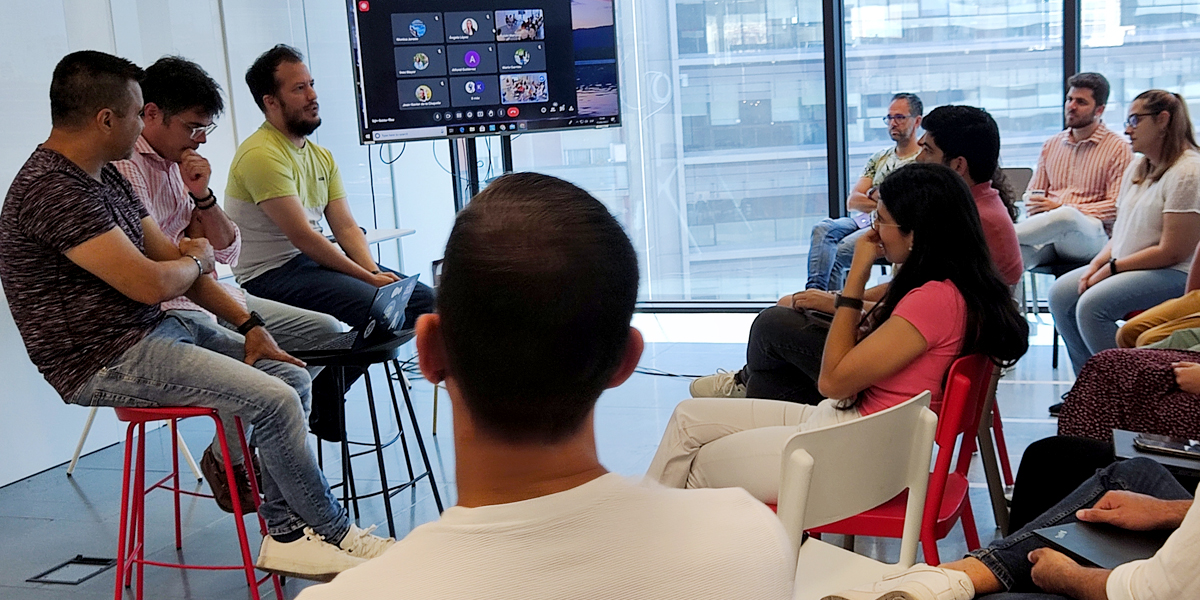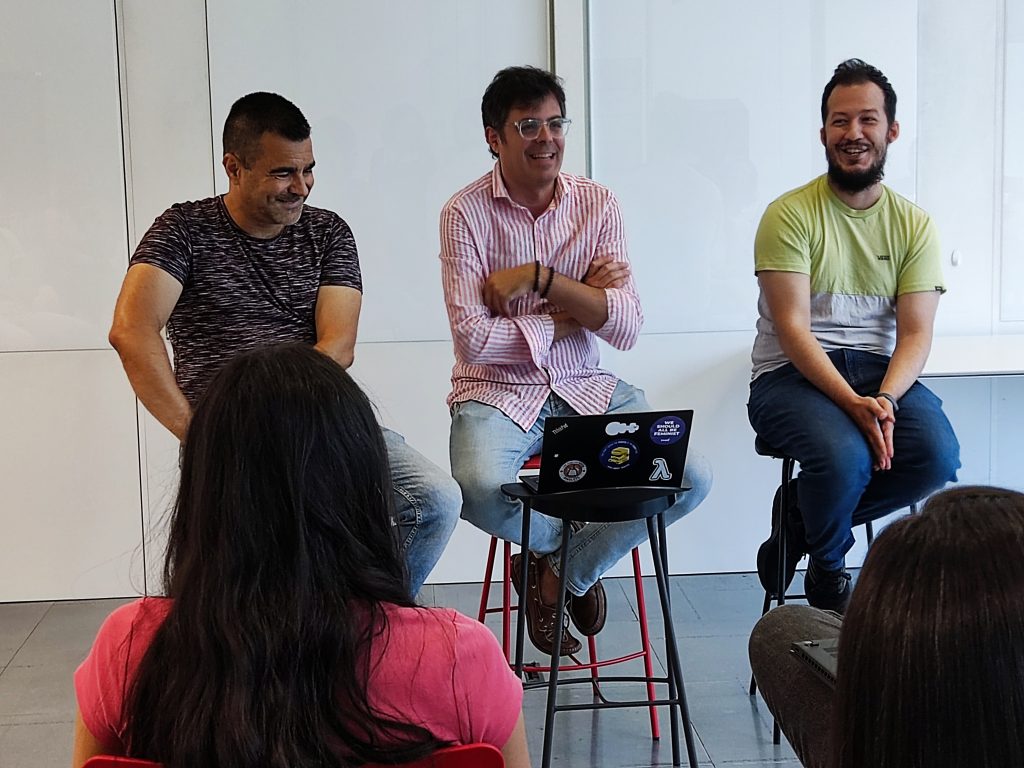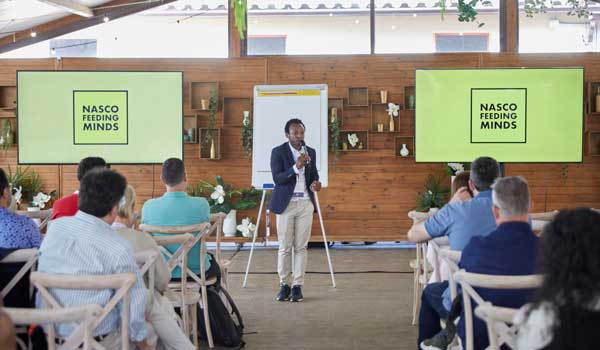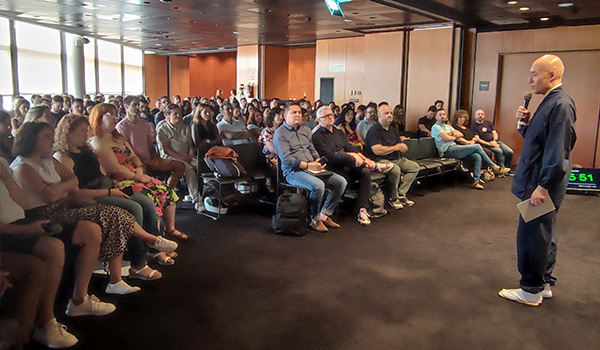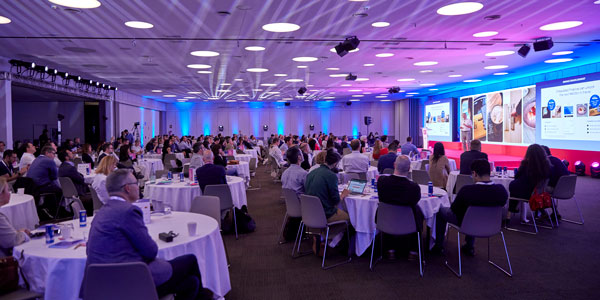For World Transplant Day, at Voxel we were lucky to have our coworkers David and Rubén share their organ transplant experiences.
The initiative was organized by Organa, a group of people from Voxel that work to promote inclusion and equality. The guest speakers were David López Sánchez (Customer Onboarding Engineer) and Rubén Martínez Cazorla (Customer Onboarding Specialist), and the event was facilitated by Lluís Giménez (Rollout Manager). More than 40 people participated in the session, and its objective was for people to learn about this reality as well as educate our coworkers about the importance of becoming a donor.
How did it all begin?
Both David and Rubén were surprised to see themselves needing an organ transplant: a kidney and bone marrow, respectively. David knew he had kidney disease, but in the case of Rubén he was not aware he had a disease (he became worried when he had flu symptoms that would not subside).
Also, these health problems were present at the time when they first began working at Voxel. “During the interviewing process, I mentioned having kidney disease and the company did not have a problem with it”, said David. On the other hand, Rubén had to take medical leave a few days after starting his job at the company.
They both needed compatible organ donors and were placed on a waiting list of patients needing an organ transplant. In the case of David, it was about a 5-year wait. During this time, a compatibility study was conducted on members of his family. Fortunately for David, his own mother was a suitable donor. In turn, Rubén had to wait a few months to find a compatible donor.
How did they live this entire process?
Before the transplant, David had to subject himself to dialysis with everything this entails: have a disinfected room available, space to store supplies and spend the night undergoing treatment (filter his blood as a result of his kidneys not working properly), among other things.
In turn, Rubén had to undergo a few chemotherapy sessions and his immune defenses were low. This meant he had to be extremely careful to not get even a minor infection.
However, managing emotions was the most difficult part of the process. For both, the probability of survival after the transplant was about 80%. Beyond the risks of the surgery itself, the possibility that their other organs could reject the new one was also a risk factor.
Lucky for them, they both were able to get surgery and, although David experienced some complications, the results were positive.
Why is it important to be an organ donor?
There are many people that in order to live or improve their quality of life need an organ transplant. There are two categories of donors: live donors and deceased donors.
Regarding live donors, any person of legal age and in good health can become an organ donor. The interventions are very safe and do not entail immediate or future health risks for the donor. On some occasions, due to compatibility issues, family members can be the donors.
Regarding deceased donors, in Spain, in accordance with the Law on Transplants, we are all considered organ donors unless we have stated otherwise. However, family members must be asked about the wishes of the deceased in this regard.
In fact, Spain is the world leader in organ donations. In 2022, 5,383 organ transplants were carried out, an increase of 13% with respect to the previous year. In spite of the good figures, we need more people to support this cause.
What are your take aways from this experience?
One of the most difficult things to manage for David has been the feeling of not wanting to see his family members suffer through this process. David and Rubén affirm that “not having to worry about your job situation during the process was of great help”.
Both coworkers coincide in the fact that their families, by living this experience so closely, have become very supportive of organ donation. In this sense, a coworker told us that she became a donor after her father needed a transplant.
Lastly, they said that although it may seem a cliché, it is important to enjoy the small things and the joys of everyday life. They are both very active people and Rubén already has a list of countries to visit. He says: “I deserve it, don’t you think?”.



